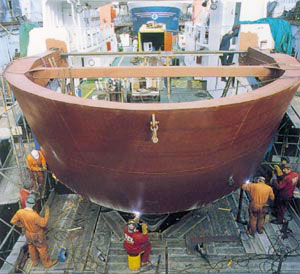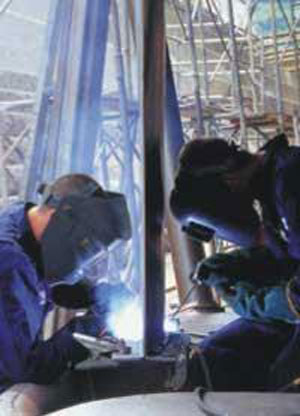Fabrication Engineer (Heavy)
Tasks & duties

Heavy fabrication engineers may do some or all of the following:
-
study drawings, plans or patterns of structures to be made or repaired
-
mark out shapes and other measurements on the metal
-
pull, bend and form metal plates and sections using heavy machinery
-
join metal parts together by bolting or welding
-
may seal the seams of the metal
-
smooth edges and secure taps, tubes and valves in place
-
press, roll, weld and cut steel using specialised equipment
-
manufacture boilers, containers and other structures
Skills & knowledge
Heavy fabrication engineers need to have:

-
knowledge of metals and their properties
-
knowledge how to use and care for their equipment
-
understanding of safety procedures
-
technical skills for interpreting drawings
-
welding skills
-
skill using computer-aided design (CAD) software
-
maths skills for making calculations and working out formulae
-
communication skills
Entry requirements
To become a heavy fabrication engineer you need to complete an apprenticeship and gain a National Certificate in Engineering (Fabrication) Level 4, specialising in heavy fabrication. For further information about apprenticeships contact Tools4Work.
Some employers may prefer that their apprentices are at least 16 years old. A driver's licence may also be useful.
Secondary education
There are no specific secondary education requirements. However, School Certificate or NCEA equivalent maths, technical drawing and workshop technology are useful.
Tertiary education
A pre-apprenticeship course may be useful for gaining a heavy fabrication engineering apprenticeship.
Training on the job
Heavy fabrication engineers gain most skills on the job. They can gain further qualifications through workplace assessments run by training providers.
Useful experience
Welding work or work in an engineering workshop is useful experience for heavy fabrication engineers.
Related courses
Aircraft Maintenance Engineering
Boiler-making and Welding
Mechanical Engineering
Sheetmetal Working
Sponsors include
For more information, please refer to Career Services.
Document Actions
